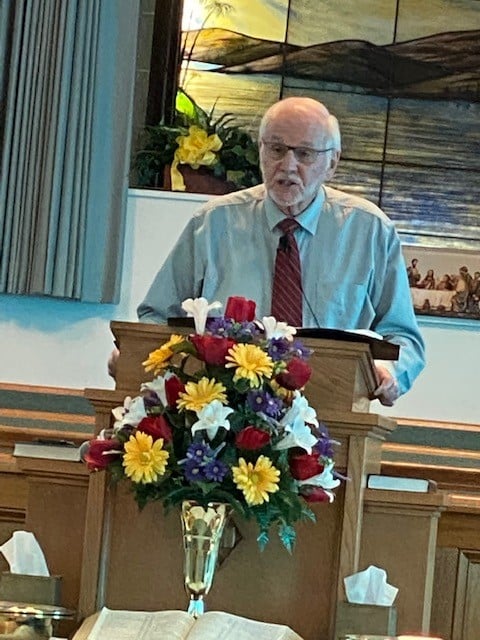How often do you read the Old Testament Law that God gave to Israel through Moses; you know, the one that provides us the 10 Commandments, and tells about tabernacle, the different sacrifices and the Priesthood, etc. Many Christians rarely, if ever, do. Why? Possibly because they believe it no longer applies since we’re under the covenant of grace and not the law. But is that truly the case?
While it is true that Jesus sacrifice on the cross did away with the Sacrificial System, there is nothing in Scripture that even hints that the moral law has been abolished.
If have you have never taken time to read through it, you should, because in it you find man’s problem spelled out. The ‘Thou shalt nots’ do not end with the 10 commandments but are found throughout Exodus, Leviticus and Deuteronomy. A good example of this is Leviticus 18. Take a minute and read through this chapter and as you do, keep in mind that this was the Law given to God’s Chosen People; you know, the one’s that God considered the Apple of His Eye (see Deuteronomy 32:10). Why would God feel it necessary to command His own covenant people not to indulge in this kind of behavior? If you truly know the Bible’s evaluation of mankind, the answer is obvious. Man is by nature a sinner, and he’s more that capable of committing the most gross sins imaginable if not restrained.
If all the people God brought out of Egypt had been redeemed spiritually as well as physically, this might not have been as important, but only a cursory reading of the Old Testament provides all the evidence one needs that this was not the case. God repeatedly referred to them as ‘a rebellious, stiff-necked people. Though God was present with them, they consistently disobeyed and tried His patience. Why? Because as Roman’s 9:6 declared, ‘They are not all Israel, which are of Israel.’ And even for those that truly belonged to Him in the deepest sense of the word, sin was still a problem (Remember King David’s downfall).
This sin problem did not go away with the coming of the New Covenant. For example, Leviticus 18:8 says specifically, ‘The nakedness of thy father’s wife shalt thou not uncover: it is they father’s nakedness.’ This is the exact sin Paul dealt with in the church at Corinth (I Corinthians 5:1). What was the remedy that Paul demanded? That the guilty one be removed from the membership, both for his good and for the good of the church (5:2-8). Just as it these sins weren’t to be allowed in Old Covenant Israel; they are not to be condoned in the New Testament church today.
Yes, the moral law still applies and we, as a church, must denounce and turn away from those sins identified therein; because ‘the true church’ that He will present to Himself at His coming will be one that has been sanctified and cleansed through the washing of the word, one that is holy and blameless’ (Ephesians 5:25-27).
See you Sunday.
For God’s glory and God’s alone,
Pastor Terry

